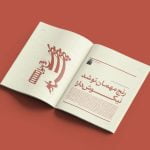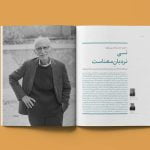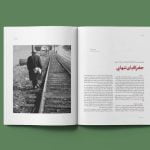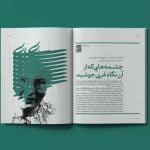Afzal Iqbal (1919-94) was born in Lahore, attended the Government College there and then the University of the Punjab. After the partition of India, he became a Pakistani citizen. Afzal Iqbal translated Camus into Urdu and published two volumes of his own Urdu poetry, but when he was invited to lecture to audiences at universities around the world, it was in his capacity as author of works in English. These included such topics as the history of the Khilafat movement and modern Islam, the formation of Pakistan, Islamic history and culture, and, of course, Rumi.
His study of Rumi, “The Life and Thought of Maulana Jalaluddin Rumi”, building upon Hakim’s foray into the intellectual sources of Rumi, set forth Rumi’s ideas in a more organized and comprehensive way. This work, the first attempt at a book-length biography of Rumi in English, has proved quite influential through its many revisions and reprintings, and in the form of Turkish, Urdu and Persian translations. The Life and Thought was first published in 1956 (Lahore: Bazm-i Iqbal) and a revised edition, incorporating the suggestions of “learned critics in Asia and Europe”, appeared in 1964 with a foreword by A. J. Arberry. The third edition was scheduled to appear in 1973 to mark the 700th anniversary of Rumi’s death, but it was delayed due to labor disputes; Iqbal revised everything thoroughly except for the first chapter, to which he gave a slightly different name “The Life and Work of Muhammad Jalal-ud-Din Rumi” (Lahore: Institute of Islamic Culture, 1974 and 1978). This was followed by further editions (5th ed., London: Octagon, 1983; 6th ed., Islamabad: Pakistan National Council of Arts, 1991) and a Persian translation (Tehran: Nashr-e Markaz, 1375/1996).
Iqbal set out to supplement the “outstanding work” of “Professor Farozan Far”, which, however failed to provide much of the cultural context “so necessary for investing a personality with any degree of tangibility”. Acknowledging the translations of Redhouse, Whinfield, Wilson and Nicholson, Iqbal points out that they provide little in the way of information about the poet’s life. Iqbal expresses disappointment over Nicholson’s posthumous Rumi: Poet and Mystic, because Nicholson was supposed to have left behind copious biographical materials on the poet. Afzal draws instead upon Shebli’s Urdu biography, but points out that Shebli did not have access to Fihe ma fih or to Shams’ Magalat.
Beyond all the scholarly justifications for the work, however, a personal devotion to Rumi as a spiritual teacher who “helped me solve many a vexed problem of my life” motivated Afzal Iqbal, who undoubtedly looked upon Rumi through the eyes of his modern compatriot and namesake, Muhammad Iqbal. Afzal asked Foruzanfar’s help in obtaining an illustration of Rumi, for he had never seen any portrait of the Master and longed to know what he looked like. Afzal Iqbal eventually received a copy of a portrait of Rumi done in the sixteenth century, which he treated as if it were an authentic likeness, subjecting it to a physiological analysis reminiscent of craniology and Victorian character studies.
Afzal Iqbal’s study seeks to “reconstruct the atmosphere — political, social, economic and literary” of Rumi’s time, and proceeds from there to periodize Rumi’s life into the formative and student years of 1207 to 1244, followed by the encounter with Shams and the resulting revolution he produced within Rumi, from 1245 to 1261. In subsequent chapters, Iqbal discusses the Divan as the product of a lyrical period brought about by this revolution, and the Masnavi as a product of the years from 1261 to 1273. He then turns his attention to chapters on the message of the Masnavi and “The Poet as Thinker.” The final chapter helpfully renders the Latin passages from Nicholson’s translation of the Masnavi into English, affording modern readers with no training in classics an understanding of the naughty vignettes from the Masnavi.
Afzal Iqbal later published a study called The Impact of Maulana Jalaluddin Rumi on Islamic Culture (Tehran: Regional Cultural Institute, 1975; Persian translation, 1985), and is the author of “Reflections on Rumi” and a volume of Urdu verse, both in press.
Lewis, Franklin D. Rumi: Past and Present, East and West: The life, Teaching and poetry of Jalal Al-Din Rumi. Oxford: One World Publications (UK), 2000.










